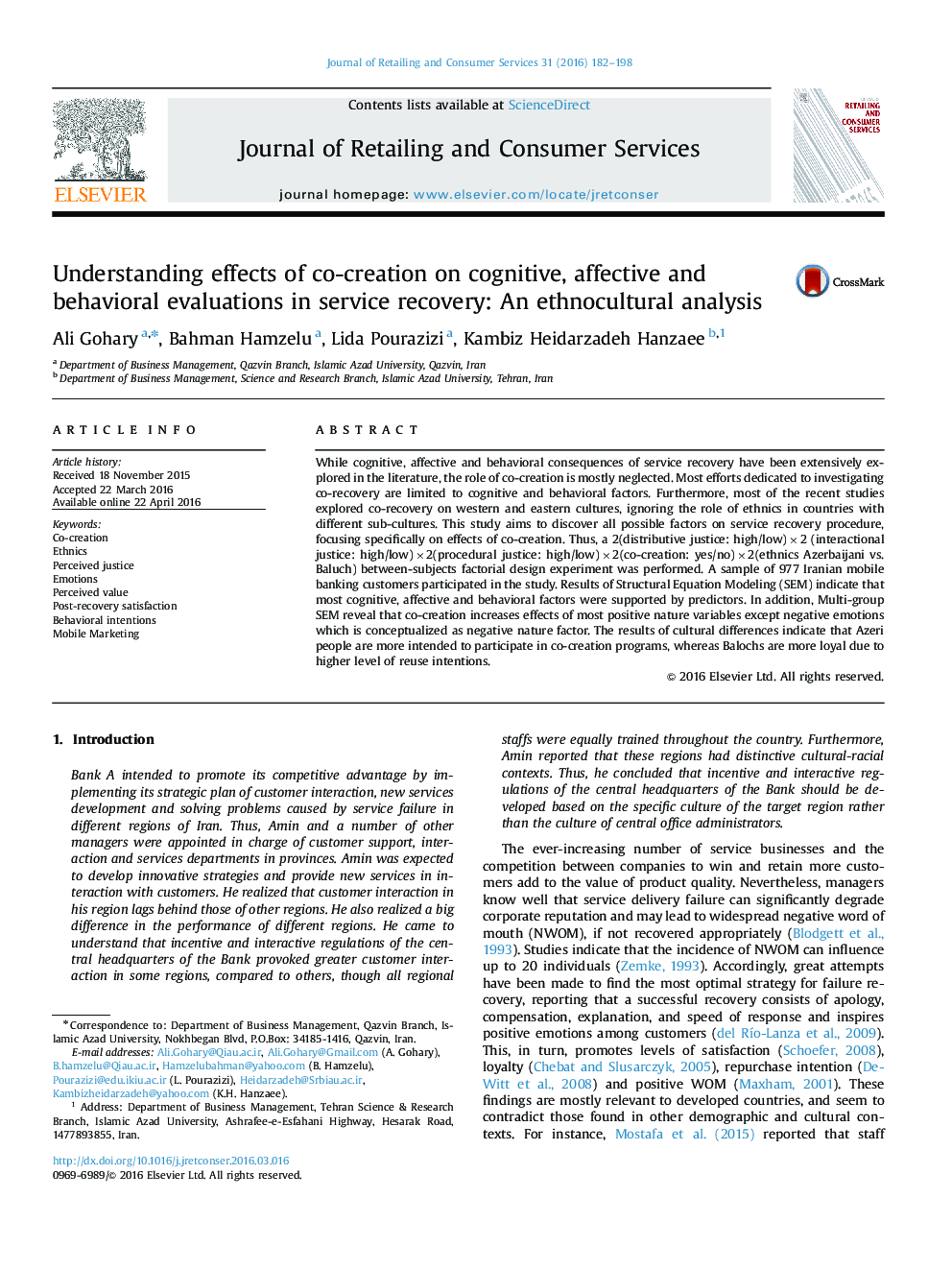| کد مقاله | کد نشریه | سال انتشار | مقاله انگلیسی | نسخه تمام متن |
|---|---|---|---|---|
| 1028750 | 1483493 | 2016 | 17 صفحه PDF | دانلود رایگان |
• Study examines the impact of co-recovery between two ethnics of Iran (Azeri and Baloch) in mobile banking setting.
• A comprehensive framework of service recovery in a middle-eastern culture is presented.
• Influence of positive and negative emotions on the process of co-recovery.
• Co-creation in service recovery as a moderator.
• Cultural differences between two ethnics as a moderator.
While cognitive, affective and behavioral consequences of service recovery have been extensively explored in the literature, the role of co-creation is mostly neglected. Most efforts dedicated to investigating co-recovery are limited to cognitive and behavioral factors. Furthermore, most of the recent studies explored co-recovery on western and eastern cultures, ignoring the role of ethnics in countries with different sub-cultures. This study aims to discover all possible factors on service recovery procedure, focusing specifically on effects of co-creation. Thus, a 2(distributive justice: high/low)×2 (interactional justice: high/low)×2(procedural justice: high/low)×2(co-creation: yes/no)×2(ethnics Azerbaijani vs. Baluch) between-subjects factorial design experiment was performed. A sample of 977 Iranian mobile banking customers participated in the study. Results of Structural Equation Modeling (SEM) indicate that most cognitive, affective and behavioral factors were supported by predictors. In addition, Multi-group SEM reveal that co-creation increases effects of most positive nature variables except negative emotions which is conceptualized as negative nature factor. The results of cultural differences indicate that Azeri people are more intended to participate in co-creation programs, whereas Balochs are more loyal due to higher level of reuse intentions.
Journal: Journal of Retailing and Consumer Services - Volume 31, July 2016, Pages 182–198
